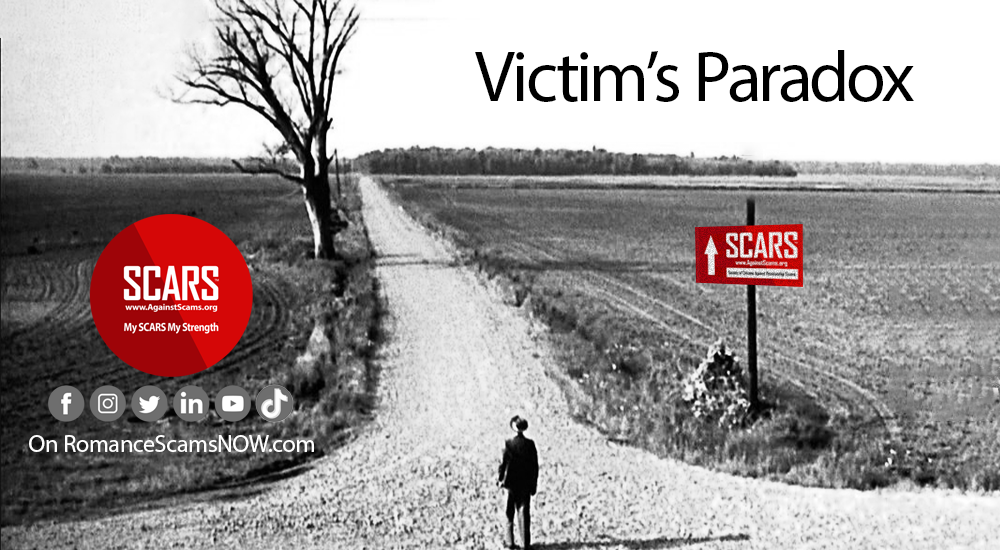What is the “Victim’s Paradox”???
Do you want to be Certain?
Victims of a crime demand certainty in all aspects of their interaction with law enforcement and the criminal justice system, and in their own recovery from these traumatic events.
Please note, this is not blaming victims, far from it. It is pointing out the disparity between what victims want and what is possible, and that what they want initially may not be the best thing for them!
After Becoming A Victim …
Victims want or even demand certainty of:
- Compassion and empathy from police officers, as though they were the first and only victim the officer has met, instead of the ten-thousandth
- Immediate attention to their issues, regardless of how many other priority requirements the police have
- That the criminal will be arrested immediately, no matter where in the world the criminal is
- That there will be a speedy trial and the criminal will be found guilty
- That the criminal will spend the rest of their life in jail
- That this will bring closure to the victim
Yet, we all know this is not rational and as a result, it does not provide any certainty.
Victims also want to feel certain that they are safe:
- That the criminals cannot harm them ever again
- That they are safe wherever they go
- That they will overcome any trauma rapidly
- That the crime will not have any lasting effects
- That they will know how to avoid crime in the future
- That their decisions will never place them at risk
But we also know that these are not rational either.
Victims also want to be certain that:
- Criminals cannot ever hurt anyone else again
- The criminal will pay the victim back for any financial hardship
- That the criminal will apologize for the harm they did
- That everyone will learn about these crimes and never fall for them again
Here too, these are not going to happen – at least not often.
Here is the paradox, that victims want what they want, but in so wanting actually prevent, in many cases the healing and effective justice that they want.
Why?
- Because the only way to obtain certainty in criminal justice is not to report the crime. Which at least in part, is why only about 1% of victims report these crimes. If they cannot be certain of an arrest then why bother?
- The only way to be certain about educating the public is to not educate the public.
It is also why victims allow themselves to fall for denial or anger and avoid recovery – because these have more certain outcomes. If you never try, then you know what the outcome will be.
The paradox is that those victims which accept the rational view of the crime, justice, and recovery have no certainties. Everyone just does the best they can!
The path ahead of each rational victim is largely a blank map. Each rational victim fills in the map as they travel along their path.
Victims can’t even be certain that they will have support, companions, or guides since so many of them chose the wrong kind of help. Plus many victims in denial or anger drive off or sabotage the support they had.
Being a rational victim is, in many ways, much harder than being irrational and insisting on certainty.
This is never more true than for scam victims.
You should give yourself a major pat on your back. By being rational, you have chosen the hard route, but the route that leads most often to the best outcome. You have chosen the hero’s path with all the uncertainty that comes with it.
Just remember that certainty is not rational, and rational is uncertain. But at least you get to figure it out as you go! That makes you a pioneer and a trailblazer!
Good On You!
Our job at SCARS is to put up the signposts along the way for you!




Leave A Comment